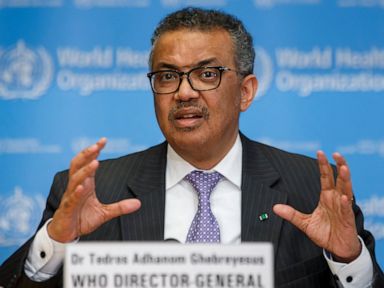
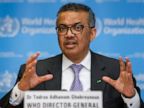

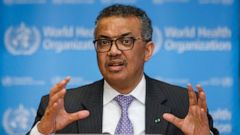

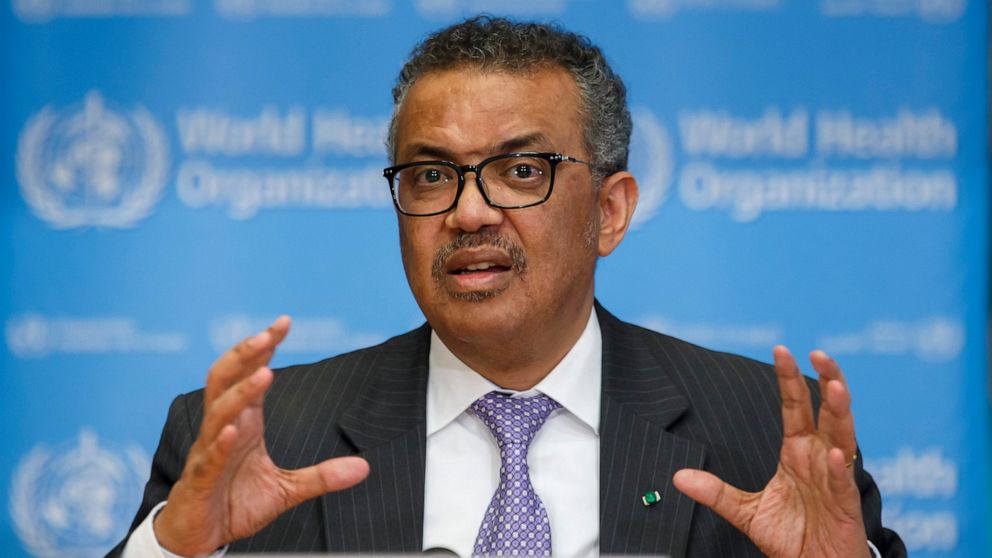
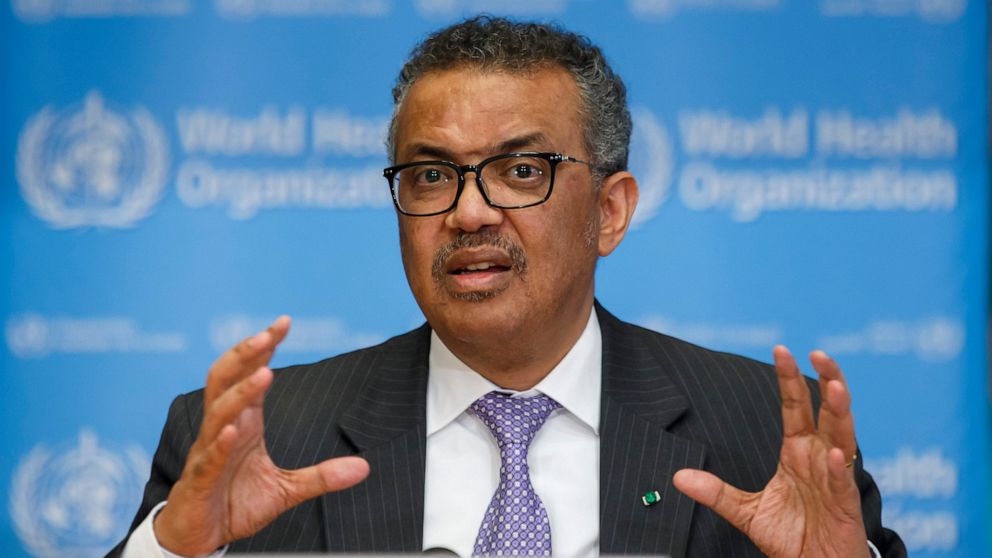
The head of the World Health Organization has warned that conditions remain ideal for more coronavirus variants to emerge and says it’s dangerous to assume omicron is the last one or that “we are in the endgame.”
GENEVA — The World Health Organization’s director-general on Monday warned that conditions remain ideal for more coronavirus variants to emerge and it’s dangerous to assume omicron is the last one or that “we are in the endgame.”
But Tedros Adhanom Ghebreyesus said the acute phase of the pandemic could still end this year if some key targets are met.
Tedros laid out an array of achievements and concerns in global health over issues like reducing tobacco use, fighting resistance to anti-microbial treatments, and risks of climate change on human health. But he said “ending the acute phase of the pandemic must remain our collective priority.”
“There are different scenarios for how the pandemic could play out and how the acute phase could end. But it’s dangerous to assume that omicron will be the last variant or that we are in the endgame,” Tedros told the start of a WHO executive board meeting this week. “On the contrary, globally, the conditions are ideal for more variants to emerge.”
But he insisted that “we can end COVID-19 as a global health emergency, and we can do it this year,” by reaching goals like WHO’s target to vaccinate 70% of the population of each country by the middle of this year, with a focus on people who are at the highest risk of COVID-19, and improving testing and sequencing rates to track the virus and its emerging variants more closely.
Omicron is less likely to cause severe illness than the previous delta variant, according to studies. Omicron spreads even more easily than other coronavirus strains, and has already become dominant in many countries. It also more easily infects those who have been vaccinated or had previously been infected by prior versions of the virus.
“It’s true that we will be living with COVID for the foreseeable future and that we will need to learn to manage it through a sustained and integrated system for acute respiratory diseases” to help prepare for future pandemics, Tedros said. “But learning to live with COVID cannot mean that we give this virus a free ride. It cannot mean that we accept almost 50,000 deaths a week from a preventable and treatable disease.”
In stark terms, Tedros also appealed for strengthening WHO and increasing funding for it to help stave off health crises.
“Let me put it plainly: If the current funding model continues, WHO is being set up to fail,” he said. “The paradigm shift in world health that is needed now must be matched by a paradigm shift in funding the world’s health organization.”
The head of WHO’s European region, Dr. Hans Kluge, said separately in a statement that omicron “offers plausible hope for stabilization and normalization,” but cautioned: “Our work is not done.” He was alluding to signs that the new variant has shown to bring with it less severe disease, even if it’s more transmissible.
He lamented “huge disparities” in access to vaccines, and echoed concerns from other WHO officials that areas where people are less immunized could allow the virus to adapt — and possibly lead to new variants.
Kluge offered a more hopeful note, even if he said “it is almost a given that new COVID-19 variants will emerge and return.”
He said that practices like strong surveillance of new variants, high vaccination uptake, regular ventilation of indoor areas, affordable equitable access to antiviral drugs, targeted testing, mask-wearing and physical distancing, “if and when a new variant appears, I believe that a new wave could no longer require the return to pandemic-era population-wide lockdowns or similar measures,” he said.
———
Follow AP’s pandemic coverage at https://apnews.com/hub/coronavirus-pandemic

